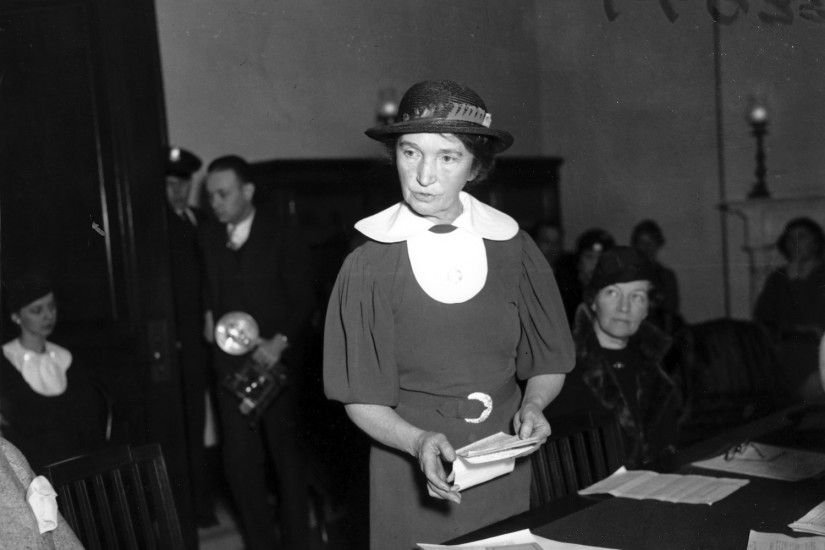The contemporary assault on reproductive rights in America is anything but a laughing matter. Some states are down to just one abortion clinic. But the comic does get something unmistakably right: up through the mid-nineteenth century, birth control was such a taboo that even the wildest imaginations of the brightest authors could not conceive of its widespread use. It was left to those dreamers who, while struggling for the emancipation of humanity writ large, struggled for women’s self-determination and bodily autonomy — namely, socialists.
Taking up an issue that was far outside the mainstream, socialist pioneers in countries like Britain, the United States, and Germany argued that access to birth control had to be understood in class terms and that women’s emancipation was at the heart of the fight for a better world. Those who broke ground were sent to jail and traduced in the press, disparaged as vulgarians and treated to withering misogyny. But they all stand as testaments to the radical origins of the birth control movement.
Even before the term itself existed, birth control took center stage in the debate about economic inequality in Britain. Annie Besant, an early socialist whose Irish parents fled the famine, saw birth control as a means to build solidarity and curb inequality. She broke the taboo against speaking publicly about sexual matters and challenged the anti-poor nostrums peddled by overpopulation fearmongers. She wrote movingly:
Some say that that it must be so, that the palace and the slum will forever exist as the light and the shadow. Not so do I believe. I believe that poverty is the result of ignorance and bad social arrangements and that therefore it may be eradicated by knowledge and by social change.
In 1877, seeking to free the birth control cause from the shackles of enforced silence, Besant published Charles Knowlton’s Fruits of Philosophy, one of the first modern works to detail contraceptive methods. The subsequent obscenity trial attracted international attention and came at considerable personal cost to Besant. Her husband, Reverend Frank Besant, tarnished her as an immoral, unfit mother. So profound was the misogyny of the time that in the court case Besant was referred to as “another person.” Her performance in the courtroom, however, was riveting: “We think it more moral,” she declared, “to prevent conception of children than, after they are born, to murder them by want of food, air, and clothing.” While Besant won her obscenity case, she lost guardianship of her children.
